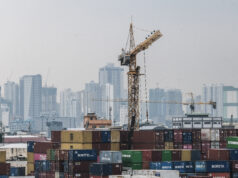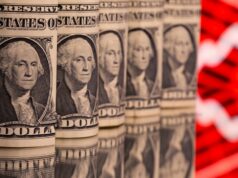Gov’t expects lower taxes amid pandemic
Economic managers lowered their expected collections from the government’s tax reform program this year until 2022 due to slowing demand amid a prolonged lockdown to contain a coronavirus pandemic.
The Development Budget Coordination Committee (DBCC) now expects to raise P171.1 billion, more than a third lower than their original forecast of about P270 billion in average yearly collections from 2019 to 2022, according to a report released on Thursday.
“The prolonged lockdown has led to distortions in the market as economic activity from businesses and service sectors has been abruptly curtailed, including a liquor ban and restrictions on the movement of goods, among others,” the DBCC said in its report.
“The combination of these factors has weakened consumer demand and dampened economic growth, which will translate into a reduced revenue base for the remaining months of 2020 and therefore has reduced revenue collection,” it added.
The DBCC cut projected taxes to P25.7 billion this year, P62.7 billion next year and P82.7 billion in 2022, according to the report. The government collected P134.7 billion from the program last year.
It said estimates for legislated tax policy measures such as the Tax Reform for Acceleration and Inclusion law and sin taxes have also been cut to account for the impact of the enhanced community quarantine on consumer demand, particularly for products subject to excise tax.
The latest forecast also considered the P44.6 billion foregone revenue from the passage of a proposed Corporate Recovery and Tax Incentives for Enterprises Act that will cut the corporate income tax to 25% from 30% this year.
The amount could still change depending on the final form of the bill that will be approved by both Houses of Congress, the DBCC said.
The government economic team expected as much as P268.3 billion in yearly taxes from the tax program, based on a fiscal report published in 2018.
The Duterte administration has lowered personal income taxes and raised the excise tax on fuel and other goods such as sweetened beverages and automobiles under its tax reform program. It also enacted measures on tax amnesty and sin taxes that increased the excise taxes on tobacco, electronic cigarettes and alcohol products.
DEFICIT
Last year, its initial tax reform package yielded P130.7 billion in additional revenue that exceeded the P108-billion target by 21%. Two tax amnesty programs generated only P4 billion, or 85% short of the P27.5-billion goal.
Economic managers said suspension of several mining operations and expiration of mining contracts, the temporary closure of major oil refineries as companies imported more finished petroleum products and a presidential decree that granted excise tax-exemption to the country’s largest coal manufacturers have reduced the tax take from the tax reform program.
Revenues generated from the estate tax amnesty last year hit P800 million, while the tax amnesty for delinquent accounts yielded P3.2 billion.
More revenues are expected to be collected as the cut-off periods were extended to May 2021 for estate taxes and to Dec. 31, 2020 for those with delinquent accounts.
Other tax bills pending in Congress are the proposed new tax regime for the mining industry and a measure seeking to streamline taxes on passive income and financial instruments.
Fitch Ratings in a report on Friday said the general government deficit could widen to 7.5% of economic output this year from the 1.2% shortfall last year. The gap is expected to narrow to 6.9% next year and to 5.8% in 2022.
This would translate to a general government debt equivalent to 48% of the economy this year from 34% last year, and roughly 50% by 2022.
“Under these projections the Philippines’ debt will remain below the forecast ‘BBB’ median,” Fitch said. “ Importantly, the Philippines entered the crisis with fiscal space due to its relatively low debt ratio in 2019. In addition, the authorities’ record of macroeconomic management lends credibility to their medium-term consolidation plans.”
The rating company in May affirmed the countrys ‘BBB’ rating and revised its outlook to stable from positive.
Fitch expects the economy to shrink by 8% this year as the coronavirus pandemic remains a threat to economic recovery. Economic managers expect the economy to shrink by 4.5% to 6.6% this year. — Beatrice M. Laforga



